Bartok’s darkness overpowers Tchaikovsky’s light in Met’s double bill
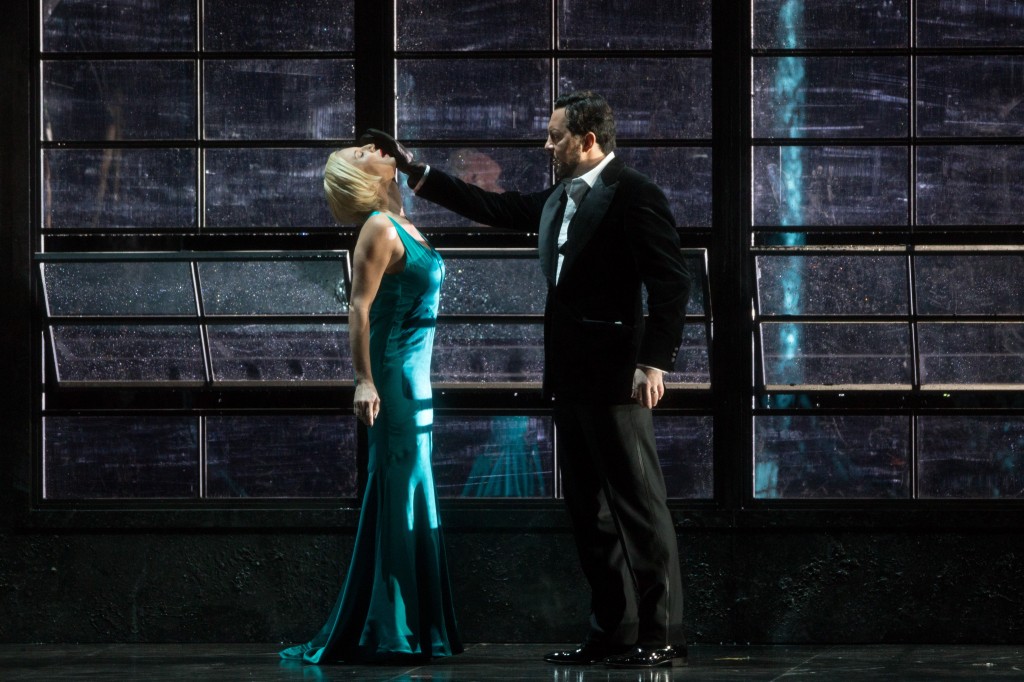
Nadja Michael and Mikhail Petrenko in Bartók’s “Duke Bluebeard’s Castle” at the Metropolitan Opera. Photo: Marty Sohl
The Metropolitan Opera wanted to make waves and in the past couple of years they certainly have, in many ways that they likely did not intend. A year ago, Anna Netrebko and Valery Gergiev were heckled at the opening night production of Eugene Onegin for not having explicitly denounced new anti-gay laws in Russia. Earlier this season, the company was blindsided by the vociferous opposition to its premiere of The Death of Klinghoffer.
Gergiev is back in the spotlight after having expressed support last year for Vladimir Putin’s Ukrainian misadventure. Every one of his performances since has been greeted with a small group of protestors outside, and on Thursday a man managed to climb onstage during the curtain call for Iolanta with a poster accusing the conductor and soprano (who recently made a donation to an opera house in the embattled city of Donetsk) of complicity in the war. The protester was lustily booed by the audience, and Netrebko handled the situation graciously, but the point was made, and the atmosphere in the house unmistakably altered—suddenly the horde of cameras on hand from Russian TV stations seemed to create more nervousness than excitement.
In a strange way, the incident actually fit with the progression of the evening, a stark turning point between light and dark. The pairing of Tchaikovsky’s Iolanta and Bartók’s Duke Bluebeard’s Castle was a perplexing one, and not because of the stylistic contrast between the two scores—though the murky depths of Bartók’s dark imagination admittedly make Tchaikovsky’s tuneful writing feel like an amuse-bouche.
Tchaikovsky’s last opera, Iolanta is the (highly fictionalized) story of the older sister of Margaret of Anjou, the powerful Queen Consort to Henry VI of England. Iolanta here is portrayed as a young woman who has been blind since birth, kept in isolation by her father, King René. Visited by the dashing Count Vaudémont, she finally learns of her affliction, and is cured after she develops the will to see.
Bluebeard’s Castle, meanwhile, is imbued with heavy symbolism, the protagonist Judith insisting as a condition of her love for Bluebeard that he open the seven mysterious doors of his castle, revealing the wonders and horrors behind them. The last door reveals his three previous wives, still alive, but forever trapped, and Judith is fated to join them.
There are a few thematic commonalities between the two operas: Light is the central fixation of both, and both present a young woman isolated by a dominating male figure.
Beyond that, though, the connections drawn between the two pieces were tenuous, in spite of numerous common elements in the two stagings, directed by by Mariusz Treliński in a co-production with the Teatr Wielki in Warsaw, where Treliński also serves as artistic director. A forest backdrop is presented by floating trees, their roots ripped from the ground. Grim antler racks hang imposingly on the wall. A naked bulb hanging from the ceiling his the only light fixture to be seen. The blindfolding of Judith at the beginning of Bluebeard’s Castle is a clear nod to Iolanta’s affliction.
In the staging of Iolanta the symbolism of these choices seemed superficial; Treliński gives the opera a cabin-in-the woods setting that neither detracts from nor adds to the piece. It almost seems, in fact, that the production of Bluebeard was completed first, and Iolanta chosen afterwards as a reasonably convenient pair.
The visual suggestions are far more effective in Bluebeard, in part because the piece itself is much more tied to textual symbolism than the moralistic tale of Iolanta; Béla Balázs’s libretto specifies no time or place for the setting. This is a myth for all time, underpinned by a strong element of fantasy, the seven doors presenting troves of deeper significance.
This staging, with eerie sets by Boris Kudlička, is a psychological thriller. The two characters enter a dank factory warehouse, and the tale of terror begins as Bluebeard blindfolds his willing captive. The horrors of the first doors that are opened, revealing the torture room, the armory, even the treasury—a sexually charged, unnerving bath scene that culminates in the appearance of a naked woman, apparently covered in blood, in the mirror—make the bright openness of the “garden” (actually more of a dining room in this production) moments of real relief. As one room transitions to the next, the two characters sing from an elevator car as an endless elevator shaft is projected onto the scrim, an imaginative solution to the problem of how to define space and movement in this psychological journey.
To be sure, this interpretation has its inscrutable moments, including the final scene, which presents the lost wives only in a very general sense, and culminates in an Annabel Lee moment between Bluebeard and a doll dressed in one of Judith’s earlier costumes. But the captivating, chilling darkness of this production, together with searing performances from its two singers, forces the audience to be as uncomfortable and confused as the characters onstage. At times, the music almost seems to disappear into a complete dramatic work of Wagnerian ideal.
And so Iolanta, first on the docket, seemed artistically and emotionally dwarfed in spite of its starry cast, a PG intro before the R–rated feature. Anna Netrebko, singing the title role, was uncharacteristically difficult to hear (possibly an acoustical anomaly of the set—many of the cast members were downright inaudible at times, depending on which way the cabin at the middle of the stage was turned) and as she reined in her sound to suit her character she sounded unusually thin. To be sure, as she let loose in her upper register her powerful, tart sound was revealed in all its glory. But at this stage in her career, the electric energy in her voice and in her physical presence overwhelm ingénue roles like this one.
As Vaudémont, Piotr Beczala was in excellent voice, his golden, creamy tone and shining top notes a perfect fit for the youthful nobility of his role. Aleksei Markov matched him as Duke Robert, his tone syrupy but taut. Both men benefited from spending a good deal of time on the apron, their voices sounding thunderous compared the rest of the cast.
Gergiev’s conducting of the Tchaikovsky, meanwhile, left a good deal to be desired. It was slow, but that was the least of the problems—the orchestra’s playing was often startlingly sloppy, and where it was not, it was nondescript. But he emerged from the dressing room a changed conductor, and gave a disquieting, riveting account of the Bluebeard score that ranks among the very best of his many powerful U.S. performances.
Nadja Michael and Mikhail Petrenko, portraying Judith and Bluebeard, do not have voices that could easily be described as “beautiful.” There is a hardness to Petrenko’s sound that makes him difficult to warm to. In Michael’s voice there are rough patches, and her attempts to sing softly often came out breathy. But she does have some astonishing depth in the lower reaches of her voice, and both artists sang with palpable fervor.
Bluebeard, though, left us with one major worry that has been felt more and more frequently. Purists have cringed in the past at the use of amplification for certain off-stage parts at the Met—the animatronic Commendatore in Don Giovanni and the dragon in the Ring (Wagner calls for an acoustic horn; the Lepage production mikes the singer) are two notable examples. But Thursday’s double-bill brought the practice to a new level. Significant portions of Petrenko’s singing in Bluebeard were piped in through overhead speakers to create a disembodied voice effect.
Amplification is, of course, taboo at major houses like the Met, and with good reason: no matter how good the system is (and you could clearly hear Petrenko’s consonants popping over the Met’s speakers) the experience of hearing a human voice, unaltered, is irreplaceable. Electronic amplification interferes with that connection, dulling the immediacy and humanity of the experience. The mikes in this production, as in others at the Met, are used only to facilitate dramatic effects; but surely different choices could be made, ones that allow vocal integrity to be preserved.
Iolanta and Bluebeard’s Castle run through February 21 at the Metropolitan Opera. metopera.org.
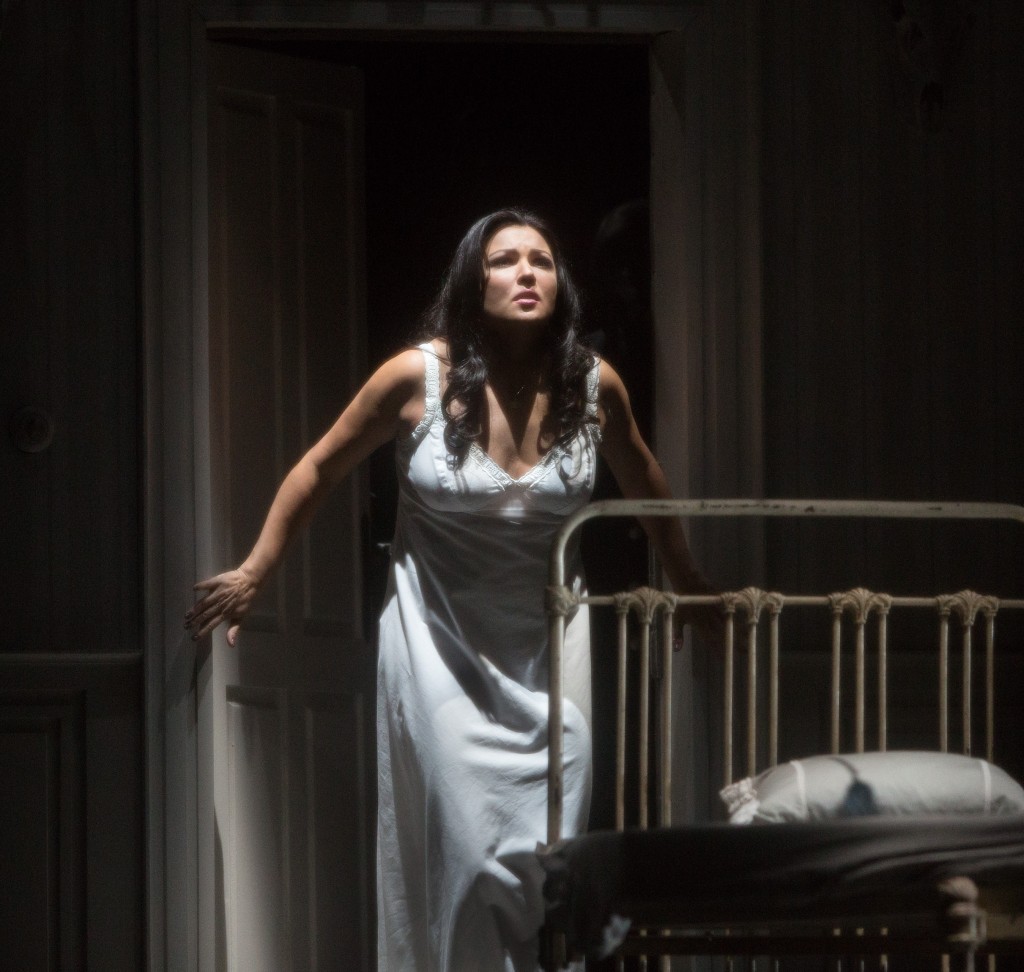
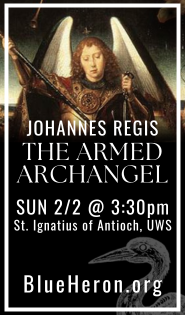
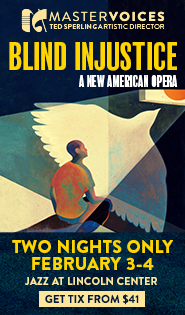
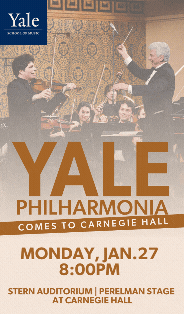
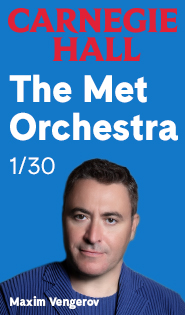
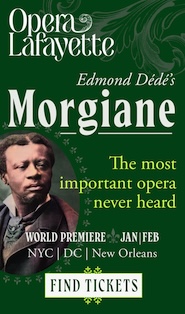
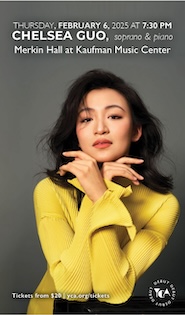
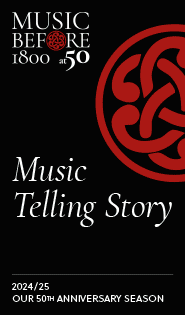
Posted Feb 15, 2015 at 2:01 pm by Constance Jones
I know you are probably thrilled that someone actually read your review. I saw the production at the Theater in Colorado in HD. I thoroughly disagree with your negative comments. I was raised in an opera loving family and am not a novice. You absolutely don’t know what your talking about.
Posted Feb 17, 2015 at 8:19 pm by Georges Clermont
After attending the dreadfully old production of Meistersingers and the Broadway parody of Les contes d’Hoffmann, it was refreshing this fabulous double bill. At last an opera production that meets today’s expectations.